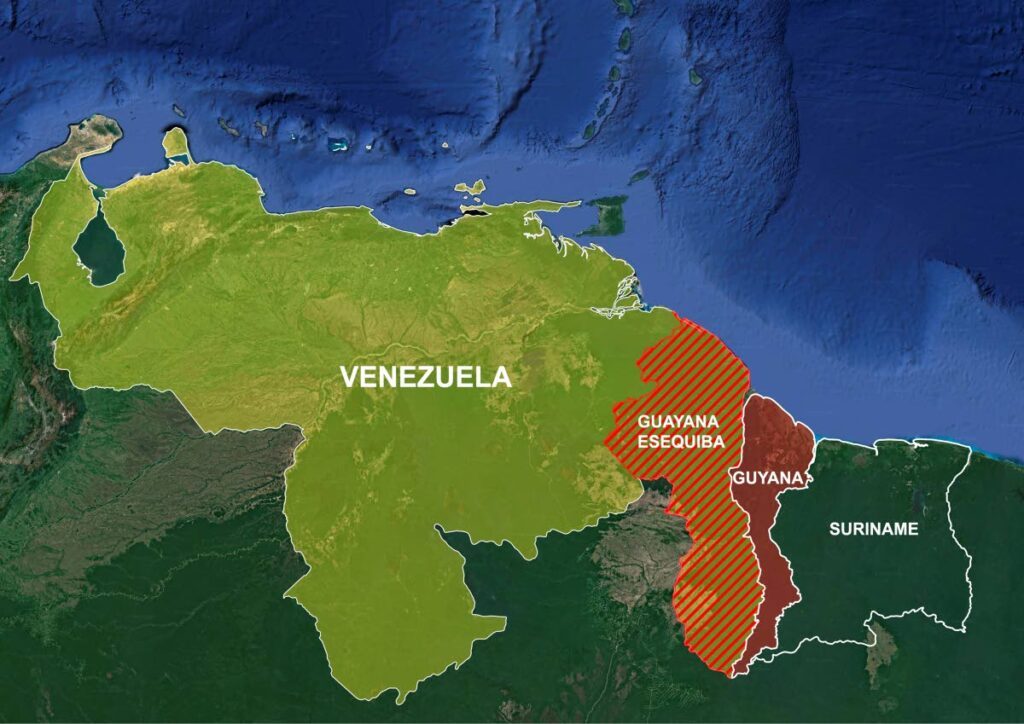Promote regional peace and goodwill

The border between Guyana and Venezuela is once again a major source of contention between the two neighbouring countries.
At the heart of the conflict is Guyana’s oil and gas-rich Essequibo region, with its promise of wealth and development for a republic of less than a million citizens. Indeed, approximately two-thirds of Guyana is being claimed by Venezuela.
With a population of more than 30 million, Venezuela, under the government of Nicolas Maduro, is no longer recognising the “line based on equity and law” established in October 1899 by the Anglo-Venezuelan Arbitral Tribunal.
The outcome of the deliberations of the tribunal was regarded by all parties to the agreement as “a full, perfect and final settlement” of the boundary issue. The official boundary map was signed in January 1905 by representatives of Venezuela and the United Kingdom.
A further strengthening of the recognition of the border came in 1931 when Venezuela, British Guiana and Brazil demarcated, on the summit of Mount Roraima, the tri-junction boundary point of the three countries.
At a time when millions of Venezuelans are fleeing hunger, unemployment, and the collapse of economic and political systems in their country, President Maduro and his advisers have declared that a large land and marine area, recognised internationally as belonging to Guyana, is to be annexed to the already vast land mass that is Venezuela.
Based on a purely internal referendum, the Venezuelan government has announced that it has received the approval of voters to “reclaim” Guyana’s Essequibo region and all its “stolen” territory. The relevance of the referendum to international law is immaterial to the Maduro government.
The recent ruling of the International Court of Justice was that, until a further hearing of Venezuela’s claim to Guyana be adjudicated upon, Guyana’s boundaries must be respected and that established and recognised Guyanese territory should not be invaded or seized by any other state.
Reports in the Venezuelan media indicate that President Maduro has taken the court’s ruling as a declaration of victory for Venezuela, contrary to the clear ruling that the status quo be maintained unless the court rules otherwise. The Venezuelan President has given “authorisation” to its state-owned companies to begin operations to explore and exploit oil and minerals in the Essequibo region in addition to the creation of a Comprehensive Defense Operational Zone to establish and cement Venezuela’s power in the disputed region.
It speaks volumes that the Venezuelan government’s interest in pursuing its claim over this part of Guyana has surged with the finding of huge reserves of oil by ExxonMobil in 2015.
The large numbers of Venezuelans who have sought work and refuge in TT are indicative of the trust that these migrants have in the good faith of the citizens of this nation and in the stability of our government and our political system.
We have long had a harmonious relationship with our closest Latin American neighbours and the surnames of many of our people bear witness to the mixing of Caribbean and Latin American blood.
Similarly, our Guyanese brethren have assimilated into our society and have enriched it by their work ethic, their cuisine, and their recognition of our Caribbean bond. This nation must do everything in its power to promote peace and goodwill in the region. We must insist that international law be respected and adhered to and that the rights of all peoples be upheld.
We must never allow the contagion of war to spread to our lands and never permit injustice or force to dictate the course of our lives or our future. May the Holy Spirit be our guide and lead us as He wills.


Comments
"Promote regional peace and goodwill"